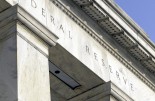Monex: Riksbank leaves interest rates unchanged, inflation goals remain out of reach
10 februari 2021
Inflatie
Rente
This is a commentary by Ima Sammani, FX Market Analyst at Monex Europe, on the policy meeting of the Swedish Riksbank.
The Riksbank’s decision this morning came out very much in line with expectations. The central bank left the repo rate unchanged at zero per cent while asset purchases will continue within the envelope of SEK700bn. The economic outlook was revised upwards with higher GDP and inflation figures from 2020 to 2023, while unemployment was revised downwards for those years. On average, GDP is set to increase by a good 3% per year in 2021-2023. Although this is a faster recovery than what was previously assessed, GDP will not reach pre-pandemic levels until Autumn of this year, according to the Riksbank’s monetary policy report. Likewise, it will take until 2023 before inflation is close to the target of 2% more permanently, pushing expectations of rate hikes far out in accordance with other central banks like the Fed and the Reserve Bank of Australia.

In line with our expectations, the better than expected economic data since November from Sweden forced the Riksbank to upgrade its nearer-term forecasts, but the improved forecasts were no reason for the central bank to strike a positive tone. The central bank reiterated that the pandemic has not released its grip on economic developments but also acknowledged the economy is more resilient to the second wave of the pandemic. Despite the resilience, monetary policy needs to remain very expansionary and the Riksbank will continue to purchase securities and offer liquidity within all the programmes launched back in 2020. The repo rate is expected to remain at zero per cent for the entire forecast period, signalling the Riksbank is in no rush to normalise policy after economic recovery has kickstarted.
The economic upgrades delivered a more positive central bank message but the rate forecasts pushed back expectations of policy normalisation as the Swedish economy, just like any other economy, will likely continue to feel the brunt of the pandemic for the years to come. The Riksbank stated the strong economic data and the ongoing vaccination programmes have reduced the likelihood of further large GDP falls this year and in the coming years, however the logistical challenges posed by the vaccinations remain a downside risk. Additionally, the Public Health Agency warned earlier this week that the decline in cases appeared to have tailed off. The Northern Swedish region imposed stricter local containment measures on Tuesday when the virus cases in the region almost doubled within a week, including a growing number of cases of the more infectious variant. Sweden has so far given out 3.7 vaccine shots per 100 people, which means the nation lags behind compared to Denmark, Finland and Norway who together have an average of 4.7 doses per 100 people.
With the virus case count not being exactly where the nation needs it to be and vaccine delivery issues remaining a downside risk to the Swedish economic outlook, the Riksbank decided to frontload asset purchases and buy SEK90bn in bonds plus an additional 10bn in shorter maturities in Q2. By comparison, it aims to buy about SEK70bn in Q3 and Q4 of this year. So far, the Riksbank has purchased around SEK330bn of assets throughout 2020 and plans to add another SEK120bn in Q1 2021 and SEK100bn in Q2. The decision to a slightly more aggressive frontloaded QE could be the reason why the Swedish krona sold off against the euro and US dollar in the minutes after the press release while the currency rallied in the build-up to the event. Looking forward, investors will focus on details of the QE purchases over the longer-run and the timing of QE tapering, while keeping in mind the central bank’s stance from the MPR where they stated that they will maintain the current stock of assets at least during 2022.
Chart: Swedish krona rallied in build-up to policy decision but failed to hold onto gains following frontloaded QE announcement











